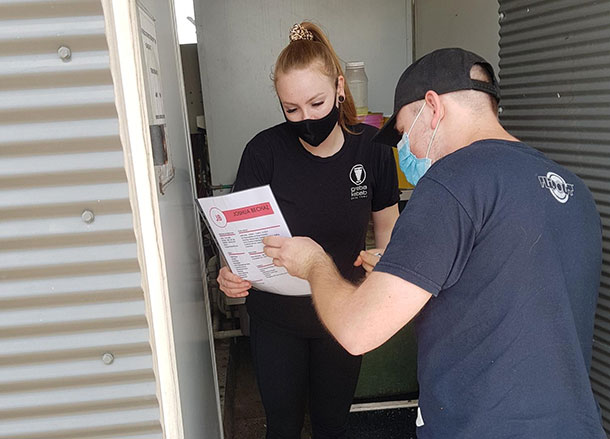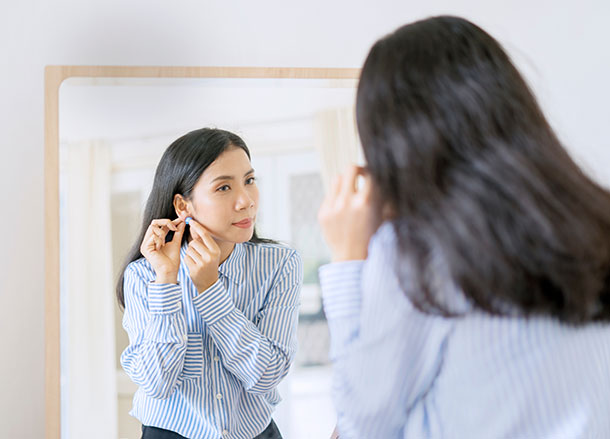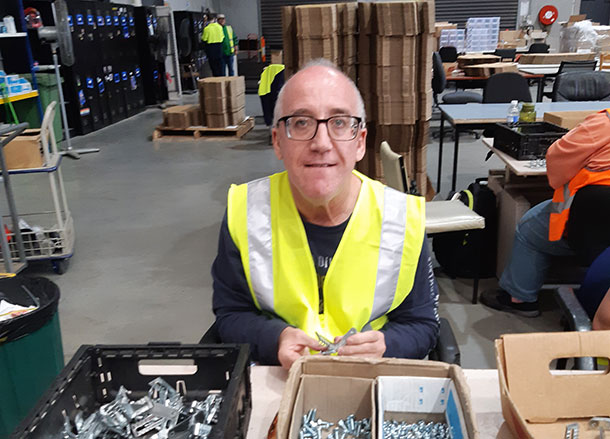Preparing for your first job interview is an exciting time. But it’s also normal to feel nervous. The secret to a good job interview is being prepared, focusing on the positive and having lots of practice. Read on to learn our top tips for preparing for your first job interview when you have disability.
Write down all your strengths
A job interview is all about selling yourself to a potential employer. Even if you haven’t had a job before, you have lots of great strengths that can be useful when working. You just need to let the interviewer know about them!
Make a list of things you enjoy doing and good things about your personality. Do you enjoy being outdoors or indoors? Are you good at making things? Are you good with computers? Are you a happy person who likes new challenges? Ask a friend or family member to help you come up with a list of your best qualities, and use them to start creating your resume.
Ask someone you trust to help with your resume
Just because you haven’t had a job before doesn’t mean you can’t write an awesome resume! All the experiences you’ve had in life such as your hobbies and interests can help tell a story about you and the job you might be suited for.
You can use your resume to say something like:
- I’ve been described as enthusiastic and a good learner
- I always have a smile on my face
- I’m good with computers
- Caring for my pets at home has shown me I’m compassionate and helpful
Once you’ve written down all your great qualities, have someone you trust proofread it for you to check for any spelling errors.

Josh discusses his resume with a potential employer
Practise your interview skills at home
The more you practise your interview skills, the more confident you will feel. The best way to practise is to do some role-playing exercises with a friend or family member, who can pretend to be the interviewer. Practise making good eye contact, answering questions clearly, sitting up straight and talking about yourself. It can help to make a list of questions the interviewer might ask you, so you are prepared on the big day.
Let your interviewer know it’s your first job
If this is your first job interview, be honest with your interviewer and let them know. This way, rather than focusing on your lack of work experience, you can talk about other skills and experiences that you have that will help you perform the job. For example, if you’re applying for a job in a warehouse, you could talk about how organised you are, or how playing sports has taught you to be a good team player.
Have a personal reference ready to go
Ask someone like a teacher, mentor or family friend to write a few paragraphs about what makes you a great person and the reasons you’d make a good employee. Have this personal reference printed out with your resume, ready to take with you to your interview.
Good hygiene is essential
Interviews are all about making a good impression, so it’s important that you present yourself as best you can. This means having a tidy haircut, being showered, wearing deodorant and cleaning your teeth before you go.

A young woman gets ready for her interview
Wear an appropriate outfit
Your interview outfit should be professional, clean and appropriate for the job you are applying for. For example, if you’re applying for a job in an office, it’s appropriate to wear a nice collared shirt and a skirt or slacks. However, the outfit you choose should still be comfortable. Make sure there are no stains and that it’s ironed. It can be helpful to wear your interview outfit when you’re practising at home so you get used to what it feels like.
Try and maintain a positive attitude
Finding a job can be difficult, but it’s important to keep a positive attitude if your first interview isn’t a success. If you are told you haven’t got the job, it’s totally okay to ask the interviewer for feedback on why. Chances are, you’ll learn some great tips that will help you on your next try. Be happy that you’ve had the experience and chance to practise.
Volunteer or apply for work experience
Gaining some experience in the workforce before you apply for a job shows the interviewer that you are serious about finding work and that you’ve built some skills that are useful to them. The best way to get experience when you haven’t worked before is to volunteer or apply for work experience.
Op shops like the Red Cross and Salvation Army are often looking for volunteers, and you will learn retail skills like how to serve customers and use a cash register. If you like animals you could consider volunteering for an animal shelter. Or put a post on your local neighborhood Facebook page explaining what you’re good at and offer to help out a local business for a few weeks.

Ambrose completing work experience in the MBS warehouse
Join a Mambourin work experience program
If you live with disability, you may benefit from some extra support in the lead up to your first interview. A Mambourin work experience program is a great way to build your confidence and get some real world work experience in a supportive and fun environment.
You’ll participate in real work teams in one of our different work settings, such as our secure document disposal facility, one of our Business Solutions warehouses or gardening teams. Our friendly staff will help you find great work opportunities after the program and can even help you prepare for your first job interview. We look forward to hearing from you!
Contact the team online or call us on 9731 9200 or email us at hello@mambourin.org.

